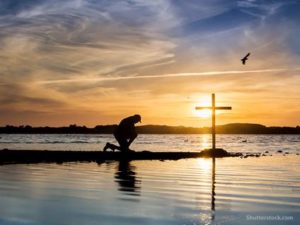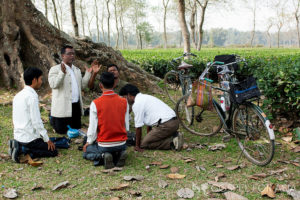 The entire chapter of John 15 is all about relationship— man’s greatest problem since the Garden of Eden. It was there that our relationship with God was broken, and ever since, all our human relationships have been in total confusion as well. These were the two things Jesus talked about with His followers.
The entire chapter of John 15 is all about relationship— man’s greatest problem since the Garden of Eden. It was there that our relationship with God was broken, and ever since, all our human relationships have been in total confusion as well. These were the two things Jesus talked about with His followers.
When we read this chapter in John, we could easily misunderstand that Jesus was instructing His disciples on bearing fruit, such as evangelism, witnessing, soul-winning and fulfilling the Great Commission. After all, He told them, “He who abides in Me, and I in him, bears much fruit” (John 15:5).
But what Jesus is actually referring to in this chapter is their lives. He is showing them how they will be able to produce the fruit of the Spirit mentioned in Galatians 5:22–23: “love, joy, peace, longsuffering, kindness, goodness, faithfulness, gentleness, self-control. Against such there is no law.”
What Jesus is concentrating on here is not at all the kingdom work that you and I do nor the work the disciples were going to do later on in the book of Acts. The fruit we will bear if we abide in Him is transformed lives. All we do is simply the result of what we have become.
What Jesus explained to His disciples worked so well that we read later on in Acts 17:6, “These who have turned the world upside down have come here too.”
A transformed life will impact everything around it and produce eternal results, without a single struggle to make it happen.
This entry was written by KP Yohannan, the president and founder of Gospel for Asia, with the intention of encouraging and edifying the Body of Christ. To learn more about Gospel for Asia or to receive additional free resources, visit Gospel for Asia’s website.
=====
Click here, to read more articles by Dr. KP Yohannan Metropolitan, or visit Patheos.
Go here to know more about Dr. KP Yohannan: Amazon | About | Integrity







